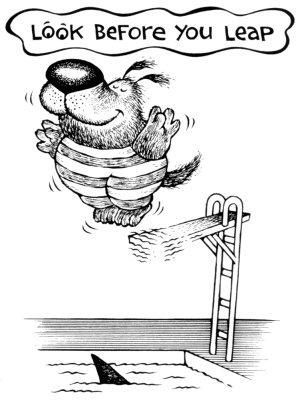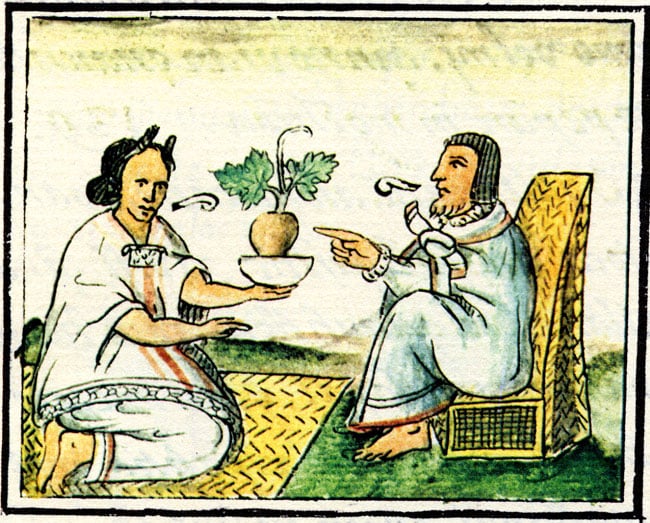 I have this philosophy about medicine (defined here as, “a compound or preparation used for the treatment or prevention of disease”) that may strike some people as a little weird. It’s an overall philosophy – I follow it myself, and recommend it to the owners of the horses I’m lucky enough to take care of. It seems disarmingly simple, but it’s apparently hard to practice, at least in some circles. Here goes: If you horse doesn’t need medicine, don’t give him medicine.
I have this philosophy about medicine (defined here as, “a compound or preparation used for the treatment or prevention of disease”) that may strike some people as a little weird. It’s an overall philosophy – I follow it myself, and recommend it to the owners of the horses I’m lucky enough to take care of. It seems disarmingly simple, but it’s apparently hard to practice, at least in some circles. Here goes: If you horse doesn’t need medicine, don’t give him medicine.
I’d like to start by admitting that I’m a big fan of medicine. It’s useful stuff. I prescribe one medicine or another pretty much every day. In many situations, medicine can really help a horse. But still… there can be too much of a good thing.
Quite simply, medicine is not the cure for all ills. In fact, it’s not only not the cure for all ills, in many cases, it’s not even the best cure for those ills. There are many, many examples in the horse world, and I thought it might be helpful to mention a few times when maybe you should consider pausing before just giving your horse some medicine.
1. If your horse doesn’t need to be dewormed, don’t deworm him
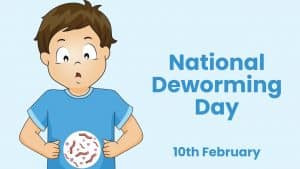 For decades, horse owners have been bombarded with the idea that horses should be dewormed regularly; according to some vaguely determined schedule, using some random (albeit attractively packaged) combination of deworming products. For many horse owners, there’s no worse nightmare than the idea that their horse might have a parasite inside it. And I’ll grant you that it’s not really a pleasant thought, but, honestly, it’s not something that you need to stress about.
For decades, horse owners have been bombarded with the idea that horses should be dewormed regularly; according to some vaguely determined schedule, using some random (albeit attractively packaged) combination of deworming products. For many horse owners, there’s no worse nightmare than the idea that their horse might have a parasite inside it. And I’ll grant you that it’s not really a pleasant thought, but, honestly, it’s not something that you need to stress about.
Horses have co-existed with some level of internal parasitism for years, and, mostly, they get along without too many problems. Horses even develop their own natural immunity to some of the internal parasites. That’s not to say that internal parasites are great, of course, but horses have largely figured out how to co-exist with them, at least at some level.
However, due to the decades-long, non-stop onslaught of directives designed to get horse owners to deworm horses (and pay for dewormers), and thanks to the ready availability of deworming agents, while we haven’t been able to get rid of the parasites, we have been able to very effectively create parasites that are resistant to deworming agents. Parasites want to live, too, and it turns out that if you constantly bombard them with deworming agents, they’ll become resistant to them: the ones that don’t get killed happily go on reproducing until the parasites that remain are mostly resistant to the deworming agents.

So… instead of just automatically shoving some deworming product into your horse’s mouth (and, often, onto your face or clothes) why not test first and treat only if necessary? My mare, Piper, will be 11 this year and she has been dewormed once in her life. I do check her manure a couple of times a year, but given her circumstances (she has her manure cleaned regularly, and she lives in a desert environment), it’s pretty unlikely she’s ever going to have a problem with parasites. I’ll deworm her if she starts having eggs in her manure, but until then, why give her something she doesn’t need? Blind deworming just costs you money and it promotes parasite resistance. Of course, your horse’s circumstances may be completely difficult from Piper’s, but my point remains: test and deworm if needed, but don’t just give your horse deworming medication if he doesn’t need it!
2. If your horse doesn’t need antibiotics, don’t give him antibiotics
Antibiotics are wonderful agents in the fight against infectious diseases caused by bacteria, to be sure. However, not all infectious diseases are caused by bacteria. So, for example, if your horse has a snotty nose caused by a viral disease (e.g., equine influenza), you can give him all of he antibiotics that you want, but they aren’t going to do any good.
 However, much as with internal parasites, it turns out that by constantly prescribing antibiotics every time a horse has a fever, or anytime that he scrapes a little hair off his skin, we’ve managed to select for bacteria that are resistant to many of the most common antibiotics. This can be a huge problem when your horse does get an infection caused by a bacteria because the antibiotics simply don’t work (these bacteria are sometimes called, “Superbugs”).
However, much as with internal parasites, it turns out that by constantly prescribing antibiotics every time a horse has a fever, or anytime that he scrapes a little hair off his skin, we’ve managed to select for bacteria that are resistant to many of the most common antibiotics. This can be a huge problem when your horse does get an infection caused by a bacteria because the antibiotics simply don’t work (these bacteria are sometimes called, “Superbugs”).
So… if your horse has a snotty nose and perhaps a bit of a fever, don’t simply demand antibiotics. It’s always a good idea to have your horse checked by a veterinarian, and you may even find it helpful to give him some medicine, say, to reduce a fever and help him feel better. Antibiotics, however, should be used judiciously, so that they’ll keep working when your horse really needs them!
3. If your horse doesn’t have ulcers, don’t give him ulcer medication
I remember when ulcer medication was first advocated for horses – the veterinarians I talked to couldn’t believe that people would pay as much money as was needed for the medication anyway (turns out we were wrong). But still, why shell out a ton of money if you don’t know that your horse has problems with ulcers, and particularly when there may be equally effective treatments that cost less anyway?
Treatments like:
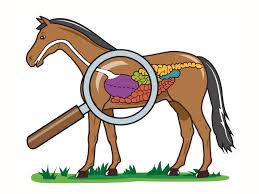 Feeding a legume hay (such as alfalfa, or lucerne)
Feeding a legume hay (such as alfalfa, or lucerne)- Feeding him small meals, more frequently. Keeping food in your horse’s stomach may offer some protection against stomach acid, and may help prevent the formation of ulcers in the first place.
- Feeding him with a slow feeder. There are many ways to do this, including bags that are certain to frustrate but also entertain, or timed feeders with lots of fun dials and electrical controls.
- Not feeding your horse grain concentrates, which promotes acid.
- Giving him some time off from competition (to reduce stress, for example)
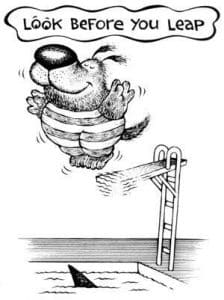 And it’s not just that. Ulcer medication – like all medications – is not perfectly safe. Concerns have been raised about problems like increased stomach acid after you stop giving ulcer medication, changes in the bacteria of the intestines, interactions with other drugs, and increased risk of fracture (CLICK HERE to see an article about the concerns). Scoping a horse to see if he has ulcers really isn’t that hard, or even that expensive, and given the cheaper, easier, and more entertaining options, why give your horse ulcer medication if he doesn’t need it?
And it’s not just that. Ulcer medication – like all medications – is not perfectly safe. Concerns have been raised about problems like increased stomach acid after you stop giving ulcer medication, changes in the bacteria of the intestines, interactions with other drugs, and increased risk of fracture (CLICK HERE to see an article about the concerns). Scoping a horse to see if he has ulcers really isn’t that hard, or even that expensive, and given the cheaper, easier, and more entertaining options, why give your horse ulcer medication if he doesn’t need it?
Bottom line? If your horse has ulcers, sure, it may be fine to give him ulcer medication, but other stuff might be even better, or certainly just as good. That the point of this article: Don’t use medicine if your horse doesn’t need medicine.
4. If your horse doesn’t have joint problems, don’t stick medicine in his joints
As far as I can tell, there is nowhere else in the medical world, human or animal, where people are regularly advised to shoot medicine into otherwise normal joints. You don’t see basketball, baseball, soccer, or football players lining up to get their joints injected on a regular basis (and not Aussie Rules football players or Irish Hurling players, either). Those athletes are worth WAY more money than horses, and you can be sure that if there was some benefit to be had, shortstops, forwards, strikers, and ruckmen would be lining up for them. Nevertheless, this crazy idea persists that horses – particularly those that participate in some form of athletic competition – have to get needles stuck in their joints on some schedule in the name of joint “maintenance.” It’s medical nonsense, and it’s certainly not the best way – or even one of the best ways – to keep joints healthy. The best ways would include things like:
 Regular movement. In the wild, horses travel 25 = 50 miles per day. Granted that modern society imposes limitations on the free movement of horses in many instances, it’s still best for horses that they get out an move around as much as possible. The best medicine is no substitute for a good romp.
Regular movement. In the wild, horses travel 25 = 50 miles per day. Granted that modern society imposes limitations on the free movement of horses in many instances, it’s still best for horses that they get out an move around as much as possible. The best medicine is no substitute for a good romp.- Rest and recovery. If you’re worried that your horse is working too hard and might develop some joint problem, there’s a simple solution. Stop working him so hard. Or, at least give him some nice intervals of rest between the times when he has to work hard. There is no athletic body that can stay tuned up all the time. In fact, when bodies try to stay tuned up all of the time, they break down. Be it a pitcher in baseball, a marathon runner, or an Aussie Rules player, you cannot expect any athlete to perform week after week without time for the body to rest and recover (it doesn’t help that in Aussie Rules, they’re constantly slamming into each other). No medication is a substitute for the body’s own healing processes. You just have to give those processes time to do their job.
Oh, and medicine doesn’t prevent arthritis, either. No medicine has been shown to do that.
5. If it can’t be proven that your medicine actually does something don’t use it
 While this is particularly true of supplements – which may be said to “help,” “support,” or otherwise do something amazing, albeit nebulous, for the horse – it also applies to pharmaceuticals and biologic products, as well. The list of medicines that have fallen by the wayside even since I started practicing on horses would be long – add supplements to that list and it would take days to read. As you probably know, I view most supplements as a pox on the horse industry – they mostly just cost horse owners money and don’t do anything for the horse. Ask for proof before you shell out money on something. Horses are expensive enough!
While this is particularly true of supplements – which may be said to “help,” “support,” or otherwise do something amazing, albeit nebulous, for the horse – it also applies to pharmaceuticals and biologic products, as well. The list of medicines that have fallen by the wayside even since I started practicing on horses would be long – add supplements to that list and it would take days to read. As you probably know, I view most supplements as a pox on the horse industry – they mostly just cost horse owners money and don’t do anything for the horse. Ask for proof before you shell out money on something. Horses are expensive enough!

